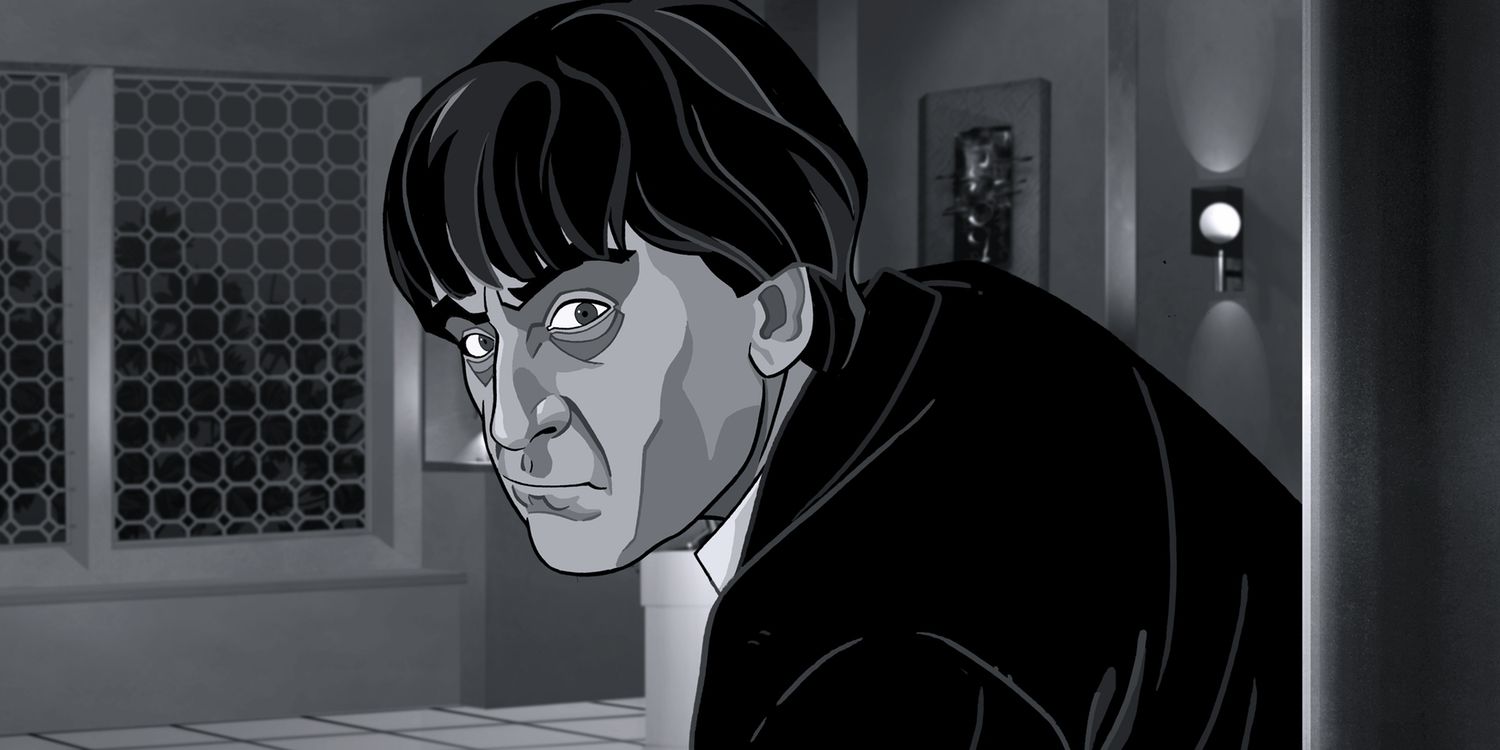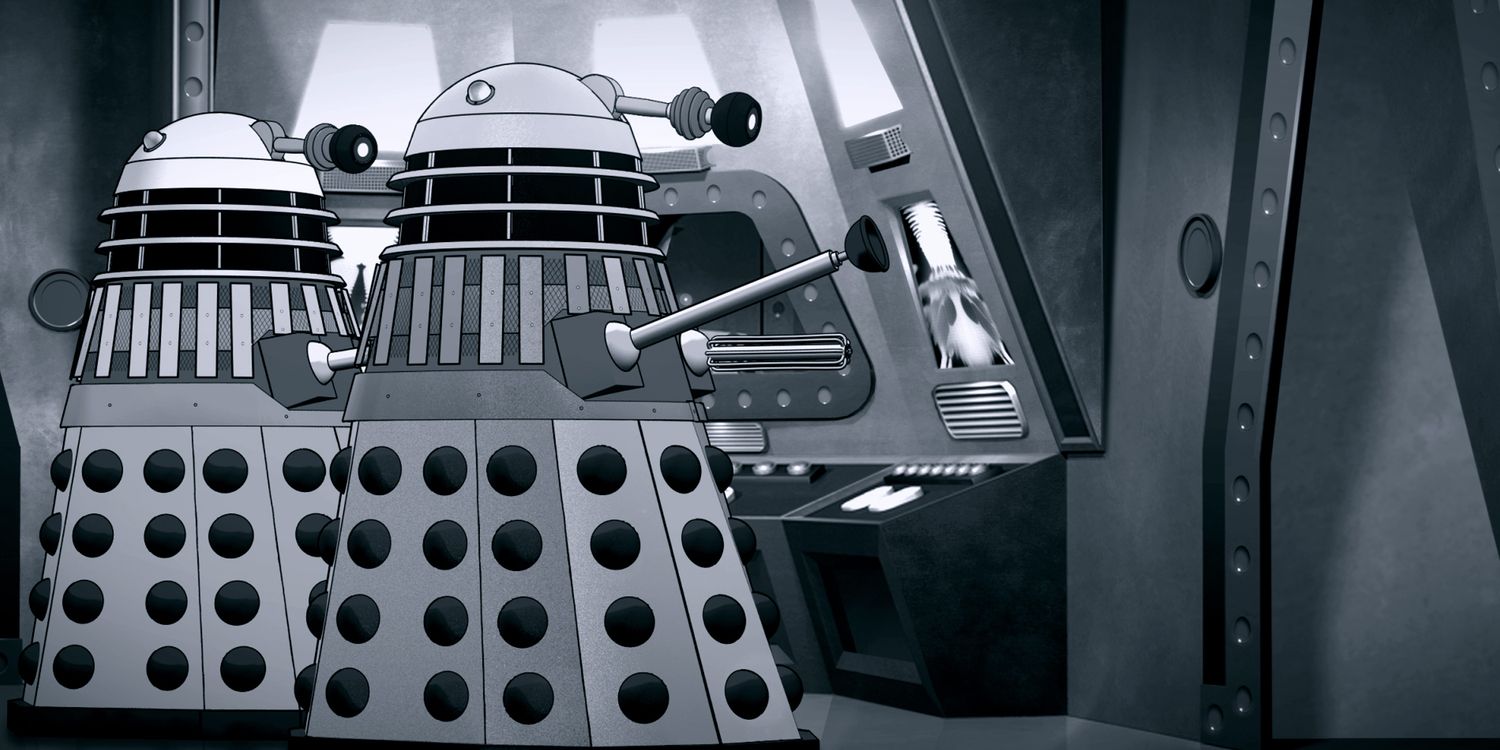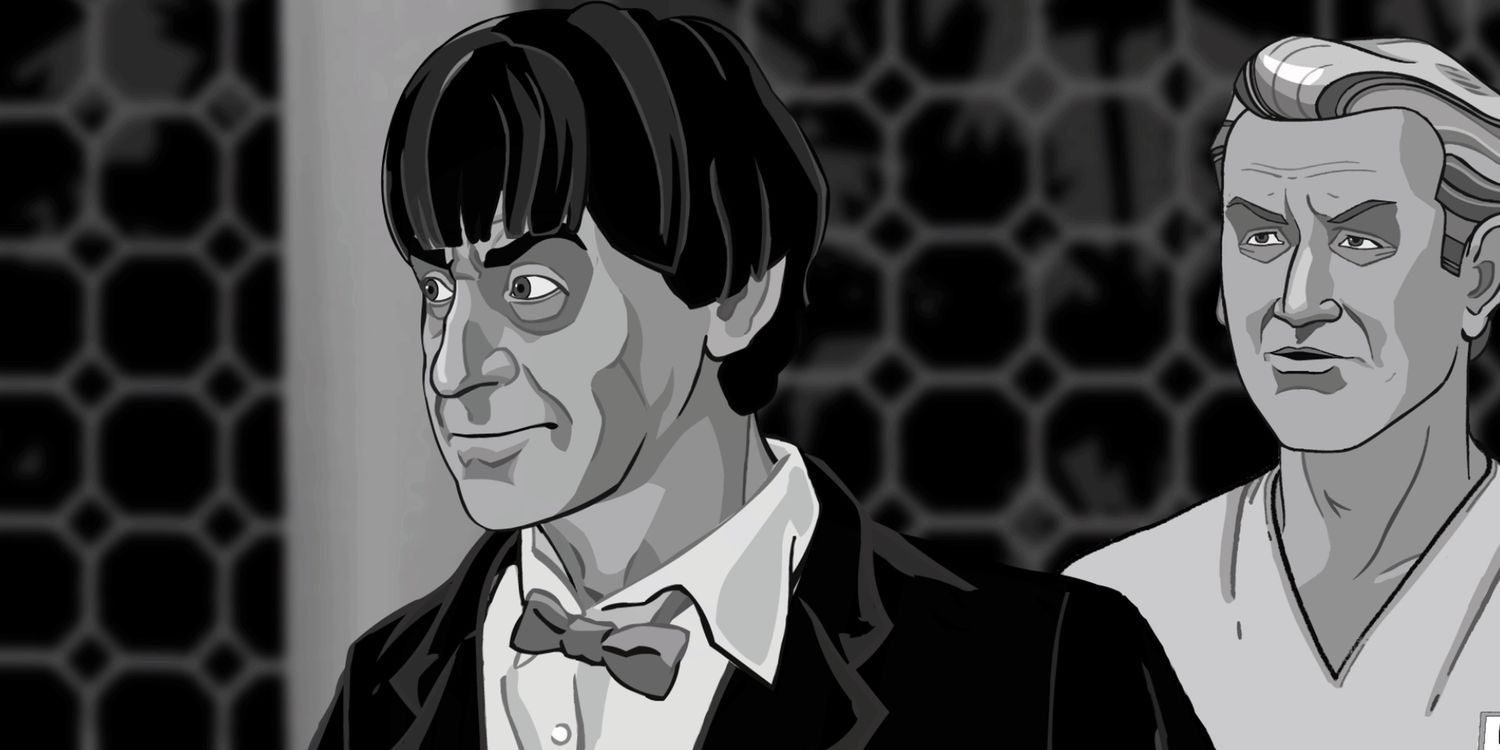As Doctor Who fans are well aware, the series' incredible longevity is due in large part to a clever bit of narrative chicanery – that being the Doctor's ability to regenerate his body, paving the way for the show to make a relatively seamless transition from one actor to the next and, in effect, turn the occasion into an event unto itself. The crafty loophole has been used in recent years to shift from Christopher Eccleston to David Tennant to Matt Smith, and most recently Peter Capaldi, but the Doctor has been regenerating on TV for decades. And so, it is fittingthat the has BBC sought to regenerate the long lost serial Doctor Who: The Power of the Daleks, effectively reviving the first time the Doctor regenerated through animation (or re-animation, if you will).
Lost in a bit of misguided housecleaning of the BBC's tape library in the mid-'70s, The Power of the Daleks is a six-episode event that introduced audiences to Patrick Troughton as the second Doctor, replacing William Hartnell in the role and beginning a long line of successors that each brought their own distinct personality and style to the character. Obviously, given the nature of the storyline and the huge implications it presented for the series moving forward, its loss was seen as more than just an unfortunate television mishap. Now, 50 years after it was last seen, director Charles Norton and artists Martin Geraghty and Adrian Salmon have teamed up to bring the adventure back to life.
The Power of the Daleks has been available for download across the pond since its actual 50th anniversary on November 5, and it has been playing in select theaters Stateside for a week, but BBC America will bring the serial to audiences in six half-hour installments, beginning tonight. And what the series offers is a handsomely animated, charmingly nostaligic adventure that, in a very Doctor-like fashion, grants audiences the ability to see the past come to life again in a whole new way.
The most striking thing about The Power of the Daleks is its unique animation style, which is most reminiscent of FX's spy spoof Archer, with its thick black lines and strong attention paid to facial expressions that walk a fine line between being cartoony and inadvertently creating a slight uncanny valley effect. Done in black-and-white, the high contrast in tones and prominent strokes may actually be an improvement on the notoriously low-budget original series, making this an upgrade in addition to restitution. Take the time to compare the animation to some of the surviving still photos from the episodes if you can.
One of the more interesting aspects of the first episode is how much it manages to pack into its less-than-30-minute time frame. The actual regeneration that brings about Troughton happens with little in the way of explanation, which demonstrates just how imperative it is for Doctor Who to have companions, who are required to put their station as audience proxy to the test. On this occasion, the Doctor is travelling with two companions, Ben (Michael Craze) and Polly (Anneke Wills), who are as perplexed by the Doctor's physical and personality shift as the audience likely was. The pair makes for an incredibly effective narrative device, as Ben acts as the skeptic, remaining unsure that Troughton is actually the Doctor long after he's done several Doctor-y things. Meanwhile, though Polly also registers some uncertainty as to the legitimacy of this new Doctor, she is the first to warm up to him, seemingly recognizing his quirks – like playing a recorder instead of answering simple questions – as trademark signs that he is the genuine article.
The episode also stands out by its willingness to play with the idea that the Time Lord's regeneration isn't just a way to jump into a new body and a give the show's costume designers a chance to stitch some new duds; it's a chance to open up an entirely new character dynamic between the Doctor, his companion or companions, and the way he interacts with others to solve whatever problem is at hand. Even if audiences aren't familiar with Hartnell's version of the Doctor, there's enough implicit trepidation and uncertainty in Ben and Polly's reactions, as well as through some of Troughton's performance, to indicate a substantial shift in the series has taken place. Add that to the story's ongoing concern over a centuries-old Dalek spaceship salvaged from a mercury swamp on the planet Vulcan and there's enough character intrigue to keep the Power of the Daleks going for several episodes.
To that end, The Power of the Daleks actually benefits from its half-hour runtime. Fans of the modern-day Steven Moffat-run series will certainly be aware just how different this story's rhythms are. Its slowed pacing is most noticeable early on, as Ben and Polly wait for an answer from the Doctor regarding confirmation that he really is the person they think he is, or at least want him to be. That time is filled mostly with strange bleeps and noises from the TARDIS. The moment builds an uncomfortable sort of tension, underlining just how difficult and frustrating an individual like the Doctor can sometimes be. But for those accustomed to the more deliberate pacing the show employs today, those long pauses can make it seem as though the episode is just padding for time. While the episodes generally run somewhere around the 25-minute range, the thought of them running longer seems impossible.
Instead, The Power of the Daleks demonstrates just how much the series has changed from its early days decades ago. Given how big a part the idea of change plays in the story, now is a particularly good time to revisit this re-animated Doctor Who story, making the thought of tuning in weekly for six quick installments seems like an enjoyable way to spend a half-hour on a Saturday night.
-
Doctor Who: The Power of the Daleks continues next Saturday @8:25 on BBC America.



